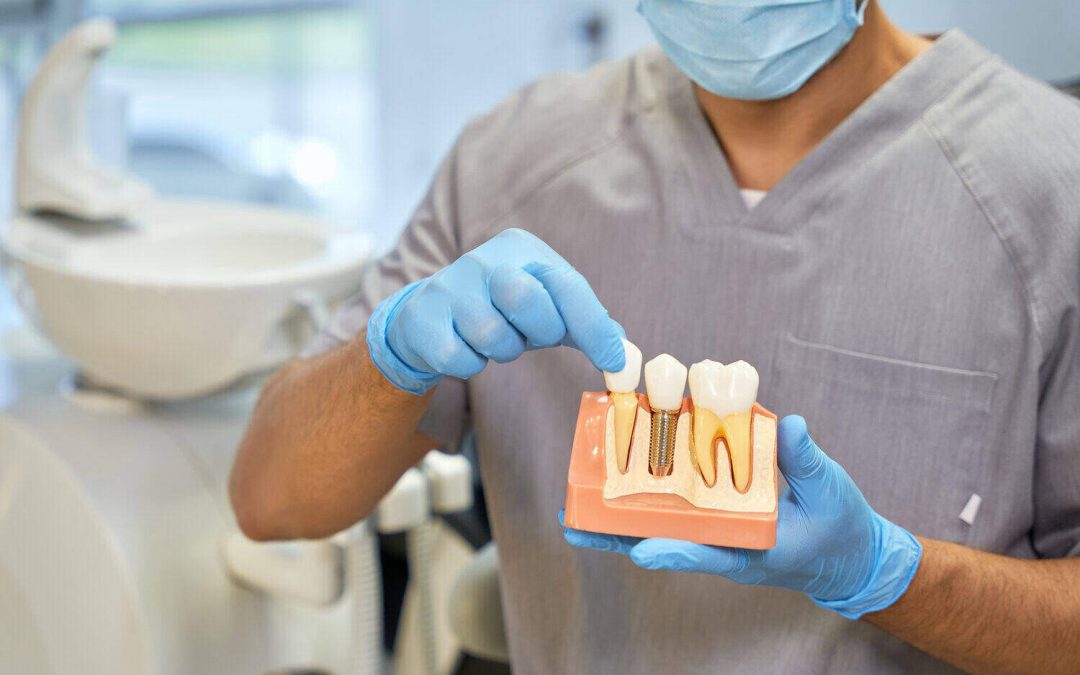Dentistry has been rapidly evolving in recent years – from a primitive and often painful form of medicine to modern diagnostics and preventive care that is comfortable for patients. One such advancement is dental implants.
Dental implants are an effective option for replacing missing teeth. They are permanent, durable, and can look and feel like natural teeth. This minimally invasive dental procedure is also very popular – a recent study shows that the Australian dental implant market is expected to increase to $136.4 million in 2027.
So, if you’re considering undergoing a cosmetic dental implant procedure with a dentist in Box Hill, here are a few things you should know before making your decision.
What are dental implants?
Dental implants refer to artificial tooth roots – in the shape of a screw – that are surgically placed into the jawbone (this is known as a fixture); a crown or prosthesis is normally attached to the fixture to allow for function. They provide a strong foundation for permanent or removable replacement teeth that are made to match your natural teeth. Dental implants are made of titanium or other materials that are compatible with the human body. An alternative to titanium is ziroconia.
Once the artificial root is inserted, the bone and soft tissues around the implant will grow and provide support to it. After the surrounding bone has fused with the implant on a biological level, your dentist will attach a replacement tooth or teeth to the metal part of the implant to stand in place of the missing tooth/teeth.
This is a good option for people who have lost one or more teeth due to injury, decay, periodontal disease or other reasons. Dental implants can also be used to support dentures, making them more secure and comfortable. In such cases the fixtures act as a connection to the denture.
What is the dental implant process?
The dental implant process involves several steps and can take several months to complete. Here’s a breakdown of the process:
Consultation
The first step is to schedule a consultation with an experienced dentist. During this consultation, the dentist will conduct a comprehensive examination of your mouth, take x-rays, and determine if you’re a suitable candidate for dental implants.
Implant placement
If you’re a good candidate, the dentist will either schedule to have a tooth mould made on a later date or have it done on the same day as well in some instances. This is to ensure that the implant matches your surrounding teeth as naturally as possible.
Then, the dentist will schedule a procedure to place the dental implant into your jawbone. This is typically done under local anaesthesia and can take anywhere from 15-30 mins for single implants to several hours for more advanced cases. After the implant is placed, you’ll need to allow time for it to heal and fuse with the jawbone, and the gums to heal around it. This process is called osseointegration and can take several weeks to months.
Abutment and replacement tooth placement
Once the implant has fused with the jawbone, the dentist will place a healing abutment on top of the implant to allow for a cuff of gum to grow around it. The soft tissues are allowed to mature for 2-3 weeks and a mould or scan is done to initiate the implant crown construction. It can take anywhere from 1 day to 2 weeks for the crown to be fabricated by the laboratory. Finally, the replacement tooth or teeth will be attached to the abutment. Depending on your needs, this can be a dental crown, bridge, or denture.
How long do dental implants last?
Dental implants are designed to last a very long time with proper oral care and maintenance. This includes consistent brushing, flossing, and regular check-ups with your dentist.
While the implant itself is considered as a permanent fixed replacement, you may still be required to maintain excellent dental hygiene as the gum health around the implant is of paramount importance. Gums are intimately related to the bone directly below it. Gum infections can cause the important bone supporting the implants to be reduced rapidly and can eventually cause implant failure. It is important that you have a comprehensive gum check with your dentist to determine whether implants are suitable for you. In some cases, if the existing gum disease is extensive, the dentist may delay implant placement until the ongoing gum disease everywhere else in the mouth are resolved.
The placement of the dental implant also influences the lifespan of the replacement teeth. As a general rule implants in the rear of the mouth are used more actively in chewing. This means that they need to be checked at 6 monthly intervals by a trained dentist to ensure the biting force is not overloading the implants. In rare cases, biting forces can strain the internal connections of an implant and brake internal structures such as screws, make the crowns loose. This highlights the importance of regular dental checks.
Are dental implants painful?
Although dental implants aren’t completely invasive, this procedure is typically done under local anaesthesia, so you shouldn’t feel any pain during the procedure. After the procedure, you may experience some discomfort or swelling, but this can be managed with over-the-counter pain medication.
How much do dental implants cost?
The cost of dental implants can vary depending on several factors, including the number of implants needed, the type of replacement teeth, and your geographic location.
In general, dental implants can be more expensive than other tooth replacement options, such as dentures. However, this is because they are also more durable and long-lasting. You can expect the cost of a dental implant to be between $4000 to $6000. Additionally, the cost may vary if additional treatments, such as bone grafting or sinus lifts are required.
What are the benefits of dental implants?
Dental implants offer several benefits over other tooth replacement options from immediate, intermediate, and long-term perspectives, including:
- Prevent bone loss or maintain relatively good levels of existing bone.
- Can be more aesthetically pleasing than other replacements.
- Does not change phonetics or how you sound compared with other replacements.
- Look and feel like real teeth.
- More durable and can last a lifetime if cared for well.
- Prevent movement of other teeth into gaps with the associated risks involved in that such as decay, gum disease, bite issues.
- Hassle-free maintenance, similar to natural teeth as opposed with other replacement options.
Get professional advice at Blackburn Family Dental
Ultimately, dental implants are an ideal and natural-looking tooth replacement method to consider. However, as with all medical-related matters, it’s best to get professional advice before deciding.
At Blackburn Family Dental, we provide exceptional care and treatment, from root canals to cosmetic dentistry and even sleep apnoea appliances. With over 65 years of experience, our dentists in Canterbury pride themselves on offering the highest standards in modern dental health in a relaxed and informative environment.
Get in touch with us for an appointment, and our friendly staff will be happy to answer any questions you may have regarding dental implants.

